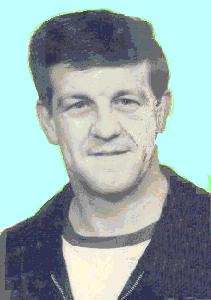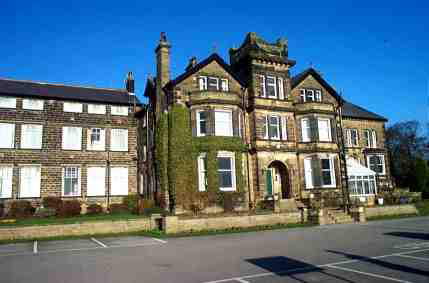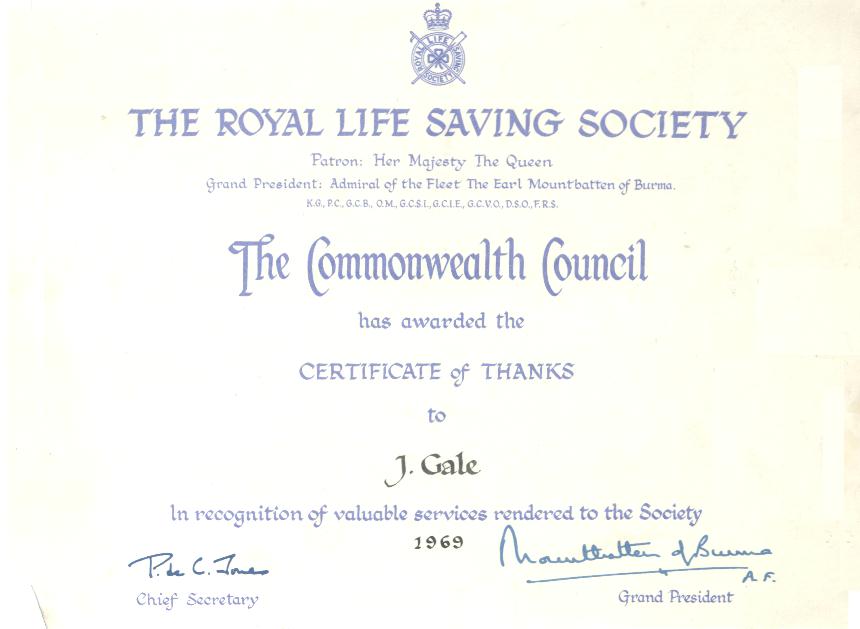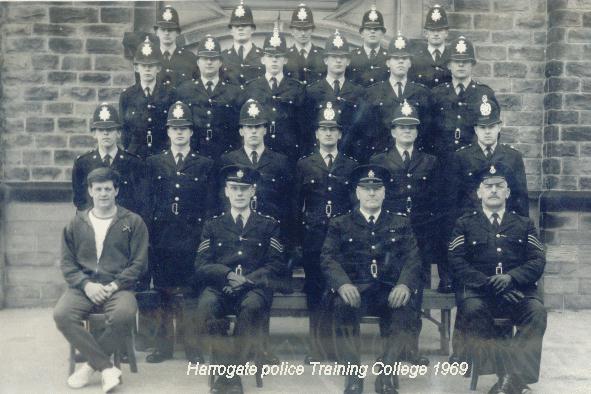|
 8. Civil Police Instuctor.  Pannal Ash Police Traing Academy, Harrogate At one of the fishmongers shops in Harrogate that I delivered to I often was given a cup of tea whilst the deliveries werebeing checked. The assistants and I often chatted about this and that. On one occasion I was asked generally about myself. I was always willing to talk about my Army service and being an Ex Military policeman. I also mentioned that I was a qualified Physical Training Instructor. One of the assistants said there was a Job vacancy at the Pannal Ash Civilian Police Training College advertised in Yesterdays Yorkshire Evening Post. “Do you still have the Paper?” I asked. A quick rummage in the dustbin revealed the Paper. Sure enough there was an advertisement for the recruitment of a civilian Physical Training Instructor. I tore the advertisement out and said that I would apply for the post and promised to keep them informed. One door closes and another door opens as they say. I duly applied for the position and a few weeks later a letter arrived inviting me to attend an interview. The Police training Centre at Pannal Ash, Harrogate is set in large spacious grounds. The building itself is very large and impressive and overlooks all of the countryside around. It had been once the home of a very rich industrialist. There were about twelve applicants and we all waited in a small ante-room in turn for interview. The interview in its self was quite daunting. I entered a very large banqueting type room with a very large Oak polished table around which sat eight men and two women. Four of the men were in Police Uniform with the badges of rank that I now know to be Chief Constables. I was invited to sit on a small chair away from the table and I felt very insecure. Probably my seating arrangement was not by chance but I was welcomed by the Chief Civil Servant secretary. Earlier I had handed in a hand written paper of my past qualifications and work experiences. Unlike now, in those days CVs were not as common as they are today. Looking back my hand written résumé was very amateurish but I subsequently found out that I was the only one who had troubled to put pen to paper. It was explained to me that in all Training centres there is a Sergeant Police Instructor training Recruits; the home office had decided to see if a civilian instructor could do the same job thus freeing a Police Officer to do the job he was trained for. It sounded logic to me. I explained that I had been to the Hendon Police Training Centre on a course of Police Holds and Self Defence and roughly understood the setup of a P.T.I. in a civil establishment. My CV was handed to each in turn and questions were asked upon it. I felt quite confident in answering all of the questions. One lady interviewee asked me about my marital status. I had prepared myself for the question knowing full well that divorce or separation was frowned upon, my past job at Securicor told me that. I answered quite truthfully that I had been married over ten years and that I had a two sons. It wasn’t actually a lie but only a portion of the truth. The secretary said that the successful applicant could be allocated one of the many semi-detached houses that were built on the side of the driveway, built specially for married Instructors. I intimated that as I had just bought recently a bungalow I would prefer to commute to and from Leeds. A final question was asked by the Chief Constable of Leeds. “Why do you think you can do the job that has been described to you?” My reply was that I had done a similar job at the Military Police Training Establishment for almost three years and I knew that I had been successful. The upshot of it all was that at the end of the day I was told that the job was mine if I wanted it: Which I did. Two weeks later I walked up the long drive of the training school to begin my first day.
Sixty Seven Pannl Ash ivil Police Training College Harrogate. On the 3rd of January 1968 I took up the post of Staff Instructor of Physical education at the Police Training College. Sergeant Evans was the PTI that I was to replace. He was very likeable and had an effervescent character. Over the next two weeks he showed me the rounds. Training Civil Police recruits was much like training Military police recruits. My part of their training was to get them fit for the job that they had signed up for. I easily settled down into the job. Much of the difference from past experiences lay in the fact that now I supervised classes of around 60 to 65 recruits rather than around 20 to 25 soldiers.. As well as fitness training my job entailed instruction in Self defence in relation to Police holds as well as 2 periods of swimming for each class twice a week. The Instruction period at that time for a civilian Police recruit was 12 weeks training. New Squads were formed every 4 weeks which meant that there were 3 squads at any time in training, usually, as I’ve said of, between 60 to 65 recruits. Every Month a squad of recruits passed out of training and returned to their respective forces and on pass-out day part of my duties was to organised a physical display for visiting dignities and relations of the recruits that were passing out. Physical training for the senior squad (last 4 weeks of training) mainly consisted of rehearsing the passing out Physical Display. I took great pains to put on as an impressive display as possible. This involved showing a few minutes of a typical PT lesson the a showing of Police Holds interspersed with Judo Then A Log session showing coordination of teamwork with telephone sized logs of wood. With a lot of work from the students quite Spectacular exhibitions could be shown. Most visiting dignities and chief constable would send letters to the commandant thanking him on a fine passing out parade. Most often than not the chief constable of which ever force took the parade would especially congratulate me on a fine display. Such times I felt really good at my job and I make no apologies for boasting that I was Wednesday afternoons, as in the army, was an afternoon of sport. Most recruits could choose which sport they wanted to participate in. In this the other instructors joined in the organisation of individual sports. Rugby, Football, Boxing, Tennis, Swimming, Athletics were just a few of the sports organised. Every 3 months the establishment would hold an exhibition of sport. In Winter it would be a boxing evening, in Summer an athletics meeting in Autumn a swimming Gala and in Spring field sports A few weeks before the sports occasion I would have to organise participants and this had to be done in overtime. I would work over from 6pm to 9pm on 3 evenings a week because without preparation and attention to detail these events can appear very amateurish. Again many dignitaries would be invited; Chief constables lord Mayors, Magistrates MPs and the like. Again I was sent many thanking letters for a good professional show. An incident comes to mind that happened during preparations for a coming Swimming Gala. I had already prepared lists of swimmers for inter class competitions in backstroke, freestyle, breaststroke races and the like and part of my job was to coach the student in swimming faster. I had earlier decided to introduce a little light entertainment during the coming gala races. I had borrowed about fifty aluminium dinner plate separating rings from the cookhouse. I halted swimming training one evening and instructed the students on the rules to the new event. I scattered at random the separators on the bottom of the pool and told all competitors that when their turn came they could take just one minute to survey the randomness of the rings and then decide a swim route round the floor of the pool. They could dive in any point round the pool retrieving as many separators as they could before surfacing I decreed that when all volunteers had had a turn then six students who collected the most rings would then compete proper at an event during the coming gala. All was going well as each trainee scooped the metal rings from the bottom and slid them on their arm before going on to get another one. One of the students who took part was a Welshman aptly called ‘Taffy’ Watkins. Taffy was not particularly a strong physical person but what he lacked in ability he made up for in determination. He had the proverbial heart like a lion and always tried that little harder than others who were more physically competent. Taffy dived in and began swimming underwater collecting the rings. All eyes were watching his progress and counting each ring as he redeemed them. His number at that point was enough to get him in the finals and he had been underwater quite a long time. Suddenly he stopped swimming and we all assumed he was looking round to spot another separator. All happened in a few milliseconds of time before, as a group, we realised that Taffy was in difficulties and the rings collected were holding him on the bottom of the pool. I ordered two students to dive in and save him. They brought him to the side and I hauled him out of the water. He was not breathing. I immediately began the manual Schafer method of artificial respiration. And luckily after a few pressures to his chest he spluttered and began breathing on his own. I placed him into a three quarter prone recovery position and ordered a stretcher to be prepared in case he had a relapse. He didn’t. The main reason why I remember the incident was that earlier in the month I had instructed this class in Artificial Respiration. I had lectured on the deferent methods of Artificial Respiration. The Mouth to Mouth and mouth to Nose Method and also the two manual, Sylvester and Shaffer physical techniques. I instructed them that the manual methods would only be used in cases where a close seal with a patient’s mouth or nose could not be obtained. But in strictly all other cases the mouth to mouth method should be used. The point I make is that on my resuscitation of Taffy a perfect mouth to mouth seal could have been obtained but, without thinking and by second nature, I had used a manual Shaffer method. No student later queried my action but I often wondered if any of them noticed my obvious mistake.
I thoroughly enjoyed my job and when I was at work I immersed myself 100 percent. My only problem with working at Pannal Ash, Harrogate was the distance I had to travel each morning and night. It was over 35 miles each way and travelling put two to two and a half hours on my day. As I have said I was offered a house on the Academy drive and it certainly would have made my job easier but I was separated from Brenda and at that time separation and divorce was still frowned upon. In fact every month on the evening before passing out a dance would be held; of course I was, along with every other member of the instruction staff and their wife’s were expected to attend. In the beginning I attended alone but was asked by the commandant why I did not bring my wife he would love to meet her. I made some excuse about her being shy and said probably next time. The next time I spoke to Brenda I told her about my problem and how important my job was, she said she would accompany me to the next with no strings attached. I introduced Brenda to all the important people of the college To all intents and purposes it appeared to all that we were happily married I hated every minute of the evening. I wanted my wife at back at my side but as my wife and not as a convenience. By this time I was living at 2 Throstle Place, Middleton with Beryl and I certainly could not let this information be known to the commandant of the college. I l told the powers that be that my wife was a shy person and felt uncomfortable in crowds. I was therefore able to attend the formal dinners and dances alone. At times I sneaked Beryl in unbeknown to anyone It was not an ideal situation but.. I had been working at Pannal Ash for over twenty two months when the home office sent a representative to examine and audit the college books. As I’ve said I was a civil servant. And so my salary along with all others was under revue. I was called in to the secretaries office, Mr Evans, who informed me that the auditor had enquired why I was being paid overtime. I was supposed to be salaried and therefore on a fixed income. I explained to the secretary that my agreed hours were from 8-30am to 4-30pm but at least twice a week I would have to take the last class starting at 4-40 meaning I did not leave the premises until at least 5-30pm. Other times I would be organising events Boxing Swimming etc and that entailed working until 9pm I said if they don’t want to pay overtime then I would take time of in lieu. He said he would explain my circumstances to the powers that be but didn’t hold much hope. A few weeks later he told me that the home office had decreed that I was salaried and no overtime could be paid. It seemed that a mistake had been made in my contrary of employment and as a salaried person I could not be paid overtime. My reaction was that for almost two years I had been paid overtime and that constituted a contract but if that is how they wanted it; that was Ok. I’ll work my designated hours but no more. He tried to reason with me that I must still do the job as I had been doing it. I said no I won’t. I felt so safe in my employment for I had proved to all and sundry that I was good at my job they couldn’t afford to sack me. I reiterated my stance on the subject and told Mr Evans that unless I was paid then no overtime would I do. Mr Evans said that as far as the home office was concerned I was just a number and unless I obeyed their order then I would be out of a job. I remained adamant and said so. Two days later I was again called into the secretary’s office. Mr Evans said that he had been directed by the home office to inform me that unless I obeyed their order I would have to resign. I really wasn’t expecting this and replied that if the home office wanted me out of the job they would have to sack me because I had every intention of taking my case to law for unfair dismissal. I said that I would work until they could find a replacement but that I would not work overtime. Within the hour The Commandant had me in his office. He asked me to reconsider my position in that as Mr Evans had said, I was just a number to the home office just as he was. ‘No single one is greater than the sum’ as he put it. I politely refused his request stating that my take home pay wasn’t that good and if you take any overtime off I would be left very little. The commandant stressed that my services would be a loss to the college but said that the matter was out of his hands. He again asked me to reconsider, we shook hands and I left. By this time I had made up my mind that I was definitely leaving and again had a meeting with Mr Evans and told him so. By the end of the month a new Policeman PTI arrived. I left the Police training school the week before Christmas 1970 I had worked at the college for exactly two years. That same week I visited a solicitor and explained my case to him in that I had been unfairly dismissed and that I wanted to sue the home office in their breech of contract. He accepted my case and said I had a good chance of winning the legal action.
|


